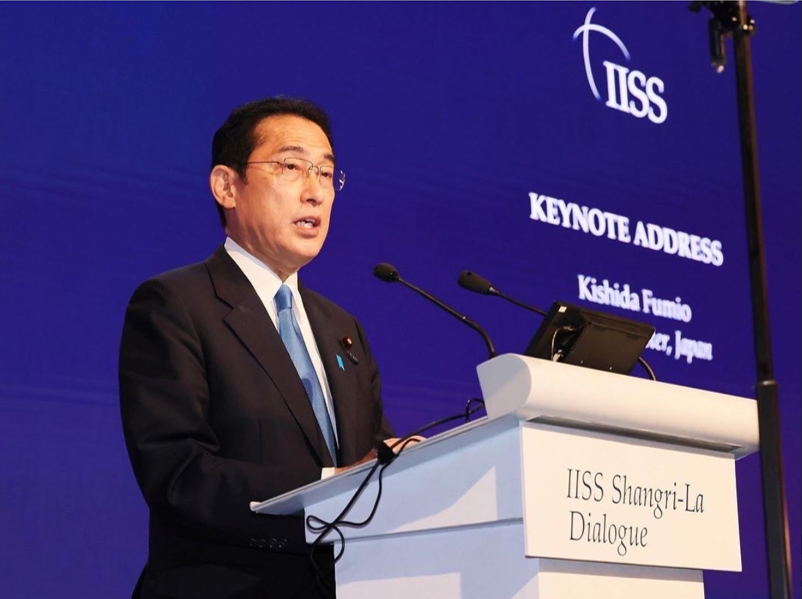Kishida Pledges to Expand Japan’s International Security Role
Speaking at the IISS Shangri-La Dialogue in Singapore on Friday, Japanese Prime Minister Fumio Kishida announced plans for an expanded Japanese security role in the Indo-Pacific. As he addressed the leaders of 42 countries, Kishida highlighted recent North Korean missile launches and China’s aggressive stance towards Taiwan as a danger for Asian security. Unsurprisingly, the centerpiece for his concern came from outside the region. “I myself have a strong sense that Ukraine today may be East Asia tomorrow,” Kishida said.
At the meeting, Japan’s leader announced his new “Kishida Vision for Peace” and made statements which expand on Japan’s growing commitment to playing an active security role in Asia. Kishida reiterated that Japan is considering acquiring preemptive strike capabilities in light of growing threats to the Pacific order, he highlighted recently revealed plans for expanding Japan’s defense spending over a five-year period and spoke of further increasing security cooperation with South East Asian states which would include more technology cooperation and additional transfers of patrol boats. Perhaps most significantly, the prime minister announced a new National Security Strategy will be published at the end of the year.
Kishida’ speech was firmly grounded in classic Japanese rhetoric. Japan’s positions were grounded with explicit references to international law and Japan’s historical pacifism was brought up in the speech. The speech was not purely defense focused, but also spoke of wider cooperation which includes economics. However, Kishida built on the growing push for a more active Japanese defense role which had been advocated by the ruling LDP over the past decade. Like Abe before him, Kishida is in favor of amending the constitution to further legitimize the Japan Self Defense Force (the existence of which has always been constitutionally questionable) and has continued to support an expansion of the military budget which has been reaching record size every year.
What sets apart Kishida from his predecessors, however, is that he has a unique opportunity to make his envisioned military expansion a reality. After the general elections last year, the ruling LDP maintained a strong majority which well-exceeded predicted outcomes. The cause of constitutional revision also benefited from the fact that the right-wing opposition, which supports the change unlike the historically more powerful left-wing opposition, gained a lot of seats. Now, with Kishida’s handling of the Covid-19 crisis and the war of Ukraine the prime minister is enjoying record levels of support. With the LDP poised to see major successes in the upcoming upper house elections, the Japan of 2022 is likely to be more active in defense than at any time since 1945.
Perhaps the greatest symbol of Japan taking a new step towards playing a more active role in global security is the announcement that Kishida will attend the NATO summit at the end of June. He will be the first Japanese Prime Minister to do so.

